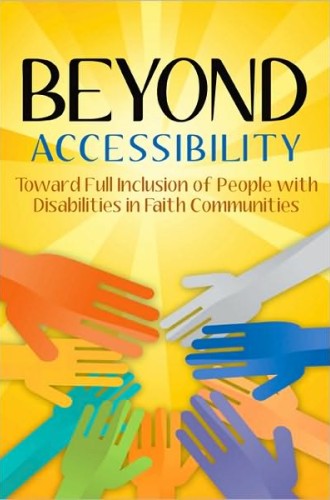Beyond Accessibility, by Brett Webb-Mitchell
My former congregation prided itself on being warm and friendly. Then one Sunday Michael came to worship, and we discovered the limits of our welcome. Michael had Tourette's syndrome, a neurological disorder characterized by involuntary physical and vocal tics. At first, there were no signs of our visitor's disability; Michael seemed rather quiet. The real trouble started when I began to preach. Throughout the sermon, Michael screeched, chirped, shouted and cursed, much to the discomfort of the congregation—and the preacher.
After the service, there was an emotional debate about the visitor and his disruptive behavior. With a mixture of pity, fear and frustration, the church leaders wrestled with the question, "How can we welcome this man without ruining worship?" We couldn't agree on a workable solution, but in the end the question was moot: Michael never returned, much to our guilty relief.
Every congregation I've served has a Michael story, which is why Brett Webb-Mitchell's book Beyond Accessibility seems so promising. Webb-Mitchell's goal is to provide "a theological and practical approach for congregations, with clear, targeted strategies for full inclusion of all members" regardless of disability. For congregations striving to welcome all people—including the Michaels—such a resource would be a boon.






